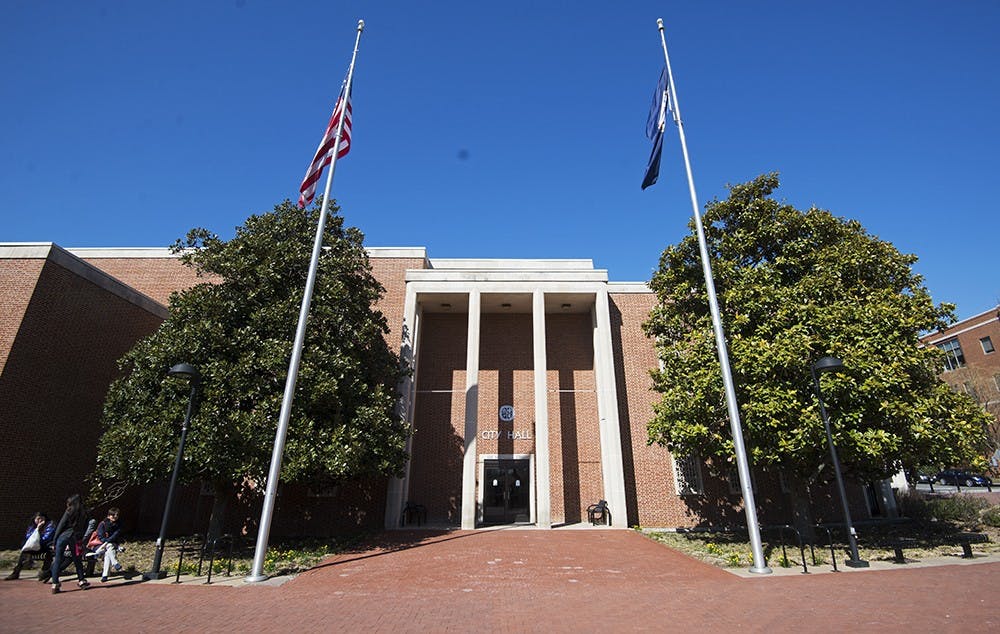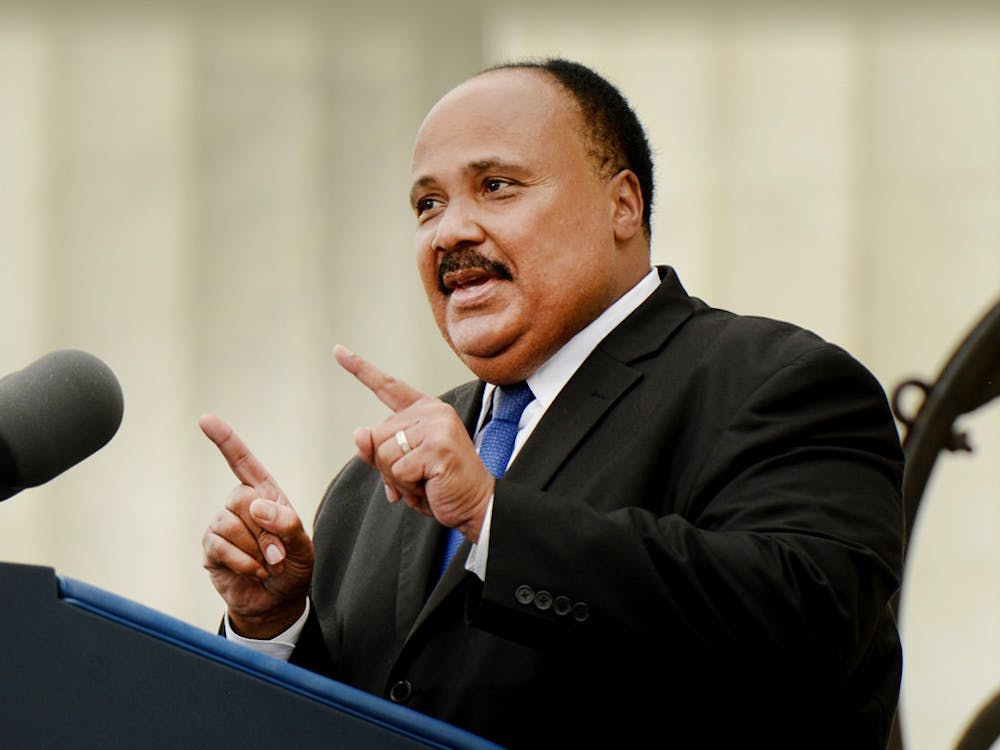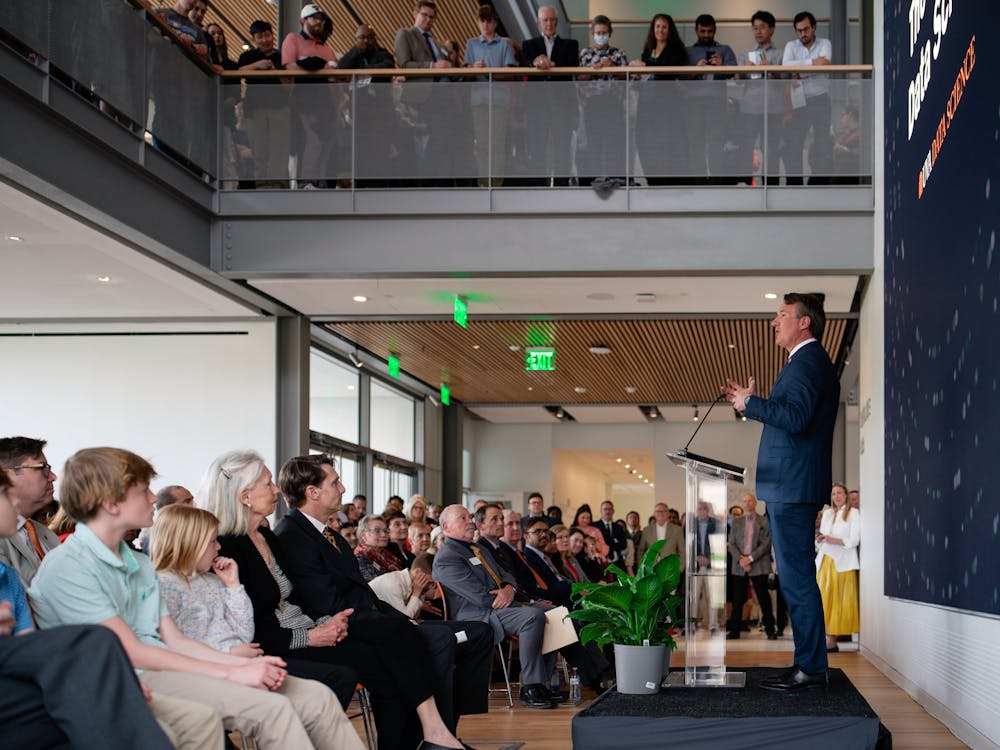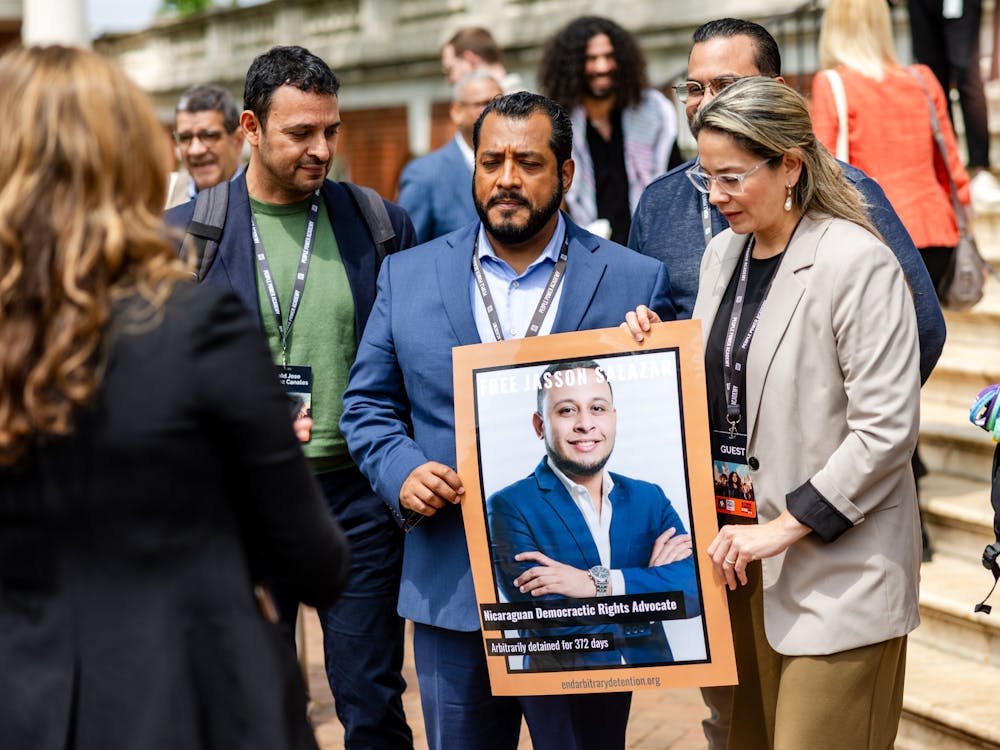Charlottesville City Council recently revised its Council meeting procedures for public comments, but the Rutherford Institute has said these changes may violate the First Amendment of the U.S. Constitution.
Community members who wish to speak before a City Council meeting are now required to sign up to speak in advance, and up to 12 speakers are allowed to speak for three minutes each before a meeting. Anyone is allowed to speak after each meeting.
Those who wish to speak before the meeting must sign up by phone, through email or in person at City Hall. If more than 12 people sign up, the names are placed in a random number sequencer that chooses the speakers and places the rest on a waitlist.
Speakers are prohibited from making “improper comments,” including interrupting other speakers, campaigning for public office, using profanity or vulgar language, threatening violence or making defamatory attacks on individuals or groups.
Rutherford Institute President John Whitehead said he believes this new policy is vague and will threaten free speech by discouraging community members to share their opinions.
“It’s so limiting that people cannot say certain improper comments,” Whitehead said. “Free speech is the right to assemble or express your opinion. That’s even if the government officials don’t like what you’re saying.”
Speakers should be able to speak freely as long as they do not threaten violence, Whitehead said.
“People have a right to tell the government to go to hell — that’s not improper speech in a public meeting,” Whitehead said. “They shouldn’t be thrown out or put at the end of the meeting. Public officials are there to hear our complaints, not our praises.”
Whitehead said he does not believe allowing anyone to speak after meetings justifies requiring people to sign up to speak before meetings because all speech is equal and there might not be time at the end of the meeting for public comments.
“The answer to America’s problems is people going down to City Council meetings,” Whitehead said. “This will chill anybody getting involved in local government.”
City Attorney Craig Brown said the city has considered the Rutherford Institute’s concerns, but said the procedures do not violate the First Amendment.
“There is no debate that local governments have an affirmative obligation to protect the exercise of First Amendment freedoms during meetings of the governing body,” Brown said in an email statement. “At the same time, courts have repeatedly held that such operating procedures ensure an environment that is free from disruption and disorder, so that local governments can do the people’s business.”
The procedures preserve order and citizens’ free speech rights, Brown said.
“From our perspective these Procedures, many of which have been in effect since 2013, strike a careful balance between those two interests, by encouraging a robust and engaged exchange of ideas in a meeting that will be conducted efficiently and effectively,” Brown said.
Maeve Curtin, student liaison between the University and City Council and a second-year College student, said recording speakers’ names and the subject about which they are concerned allows policymakers to work closely with citizens.
“It’s great because I’ve been able to reach out to people and have meetings with people about certain issues that they care about,” Curtin said.
While Curtin acknowledged the concerns some citizens have about the new policy, she said there are different ways for community members to express their opinions, including Mayor Mike Signer’s weekly office hours or emailing individual council members.
“If students or community members are interested in specific policy issues, they’re always welcome to attend meetings to hone their interests and learn more about the community,” Curtin said.
Law Prof. Leslie Kendrick said the system of requiring speakers to sign up to speak in advance does not violate the First Amendment.
Because it is impossible for every community member to speak for an unlimited time at a public meeting, public officials are allowed to place certain rules on speakers in order to maintain order, she said.
“When you have a space or time period in which only a few people can speak, then the First Amendment requires that the mechanism for who gets to speak be a neutral mechanism,” Kendrick said. “The thing about this policy that works is that it’s a neutral method of providing access.”
Kendrick said the policy of allowing speakers to sign up by phone, through email or in person and the method of selecting speakers by a random number sequencer is a neutral mechanism.
“They have provided three different forms of access, and are trying their best to make this accessible to people,” Kendrick said.
However, Kendrick said the policy’s rules about improper comments and the ban on profanity and vulgarity may possibly present a legal issue.
“It seems to me that these standards cut into speech that’s otherwise protected by the First Amendment — profanity and vulgar language,” Kendrick said. “Some types of defamation are protected by the First Amendment. This policy is requiring people to be on better behavior than the First Amendment generally requires them to be, which could be a potential problem.”





